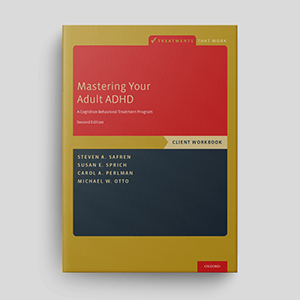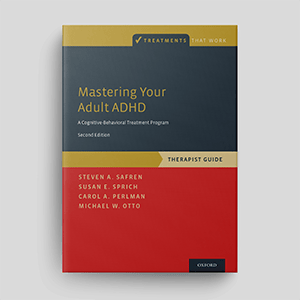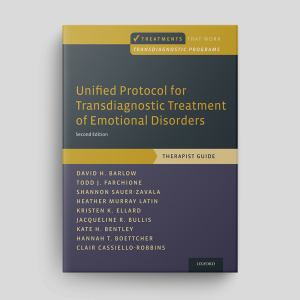Supporting Caregivers Of Children With ADHD: An Integrated Parenting Program: Therapist Guide
This resource provides therapists with a structured, evidence-based guide for supporting parents of children with attention-deficit / hyperactivity disorder (ADHD). By integrating behavioral and cognitive strategies, it offers practical tools to help caregivers manage their own stress and improve their child’s behavioral and emotional regulation.
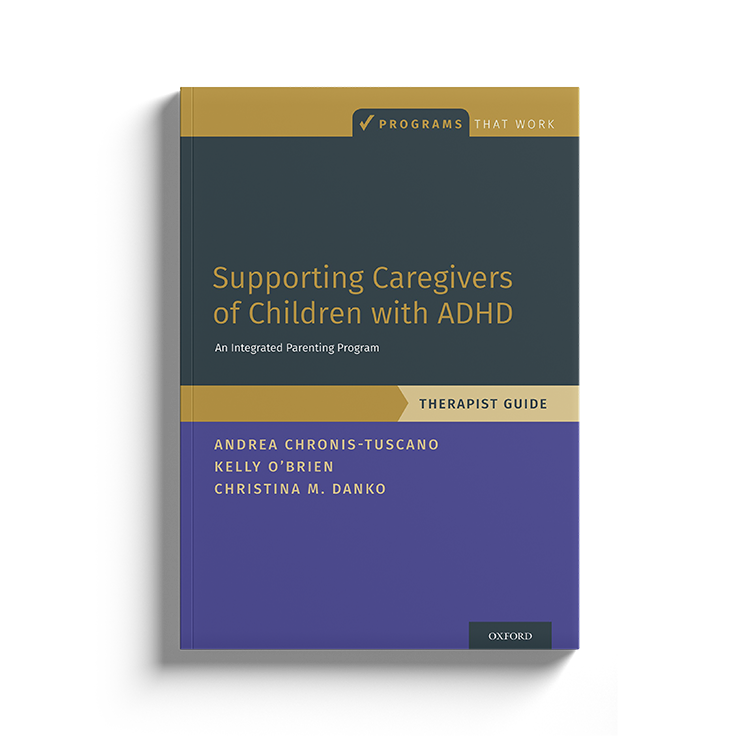
Download or send
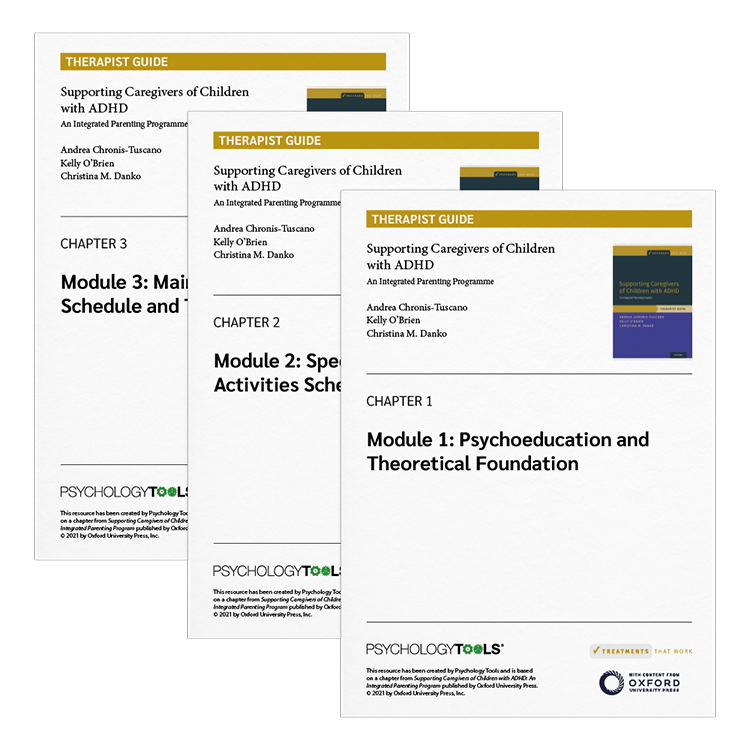
Overview
Parenting a child with ADHD presents unique challenges that can lead to stress, frustration, and feelings of helplessness. This guide is designed to equip therapists with strategies to support caregivers in creating a structured, consistent, and emotionally supportive environment for their children.
The program integrates established behavioral parenting techniques with cognitive behavioral therapy (CBT) and emotion-focused strategies to help parents develop self-care routines, improve emotional regulation, and implement evidence-based behavior management techniques. By improving caregivers' mental well-being, this resource enhances their ability to support their child effectively.
Why use this resource?
Attention-deficit / hyperactivity disorder (ADHD) is a neurodevelopmental disorder that affects attention, impulse control, and emotional regulation. Parental stress and inconsistent responses can exacerbate chidren's difficulties. This treatment program helps caregivers:
- Understand ADHD from a behavioral and cognitive perspective.
- Implement practical strategies to improve structure and consistency.
- Develop coping mechanisms for managing their own stress and emotional reactivity.
- Foster positive parent-child interactions through effective behavior management.
- Reduce common negative cycles of frustration and conflict.
Key benefits
Structure
Regulation
Engagement
Consistency
Evidence-Based
What difficulties is this for?
Attention-Deficit / Hyperactivity Disorder (ADHD)
Caregivers of children diagnosed with attention-deficit/hyperactivity disorder who struggle with emotional regulation, impulsivity, and inattention.
Emotional Dysregulation
Parents of children who have difficulty managing their emotions and behaviors.
Parental Stress
Caregivers experiencing high levels of frustration, anxiety, or emotional exhaustion related to their child's behavior.
Integrating it into your practice
Psychoeducation
Help parents understand the neurological and behavioral aspects of ADHD.
Structure
Guide families in implementing consistent routines, schedules, and reinforcement systems.
Emotion Coaching
Teach caregivers how to model and encourage emotional regulation.
Behavioral Interventions
Support parents in using praise, planned ignoring, and time-out effectively.
Self-Care
Emphasize caregiver well-being through mindfulness and stress-reduction techniques.
Collaboration
Work with teachers, schools, and co-parents to maintain consistency across settings.
Progress Tracking
Use goal setting and behavioral monitoring to assess improvements.
Theoretical background and therapist guidance
This program is grounded in behavioral parent training (BPT), cognitive behavioral therapy (CBT), and emotion-focused approaches. ADHD is highly heritable and influenced by environmental factors, making caregiver support essential in managing its impact. The intervention follows a transactional model, recognizing the bidirectional influence between parent and child behaviors.
Parents of children with ADHD often struggle with their own executive functioning, emotional regulation, or mental health conditions, which can interfere with effective parenting. By integrating self-care and emotion-focused strategies, this guide addresses both child behavior and parental well-being.
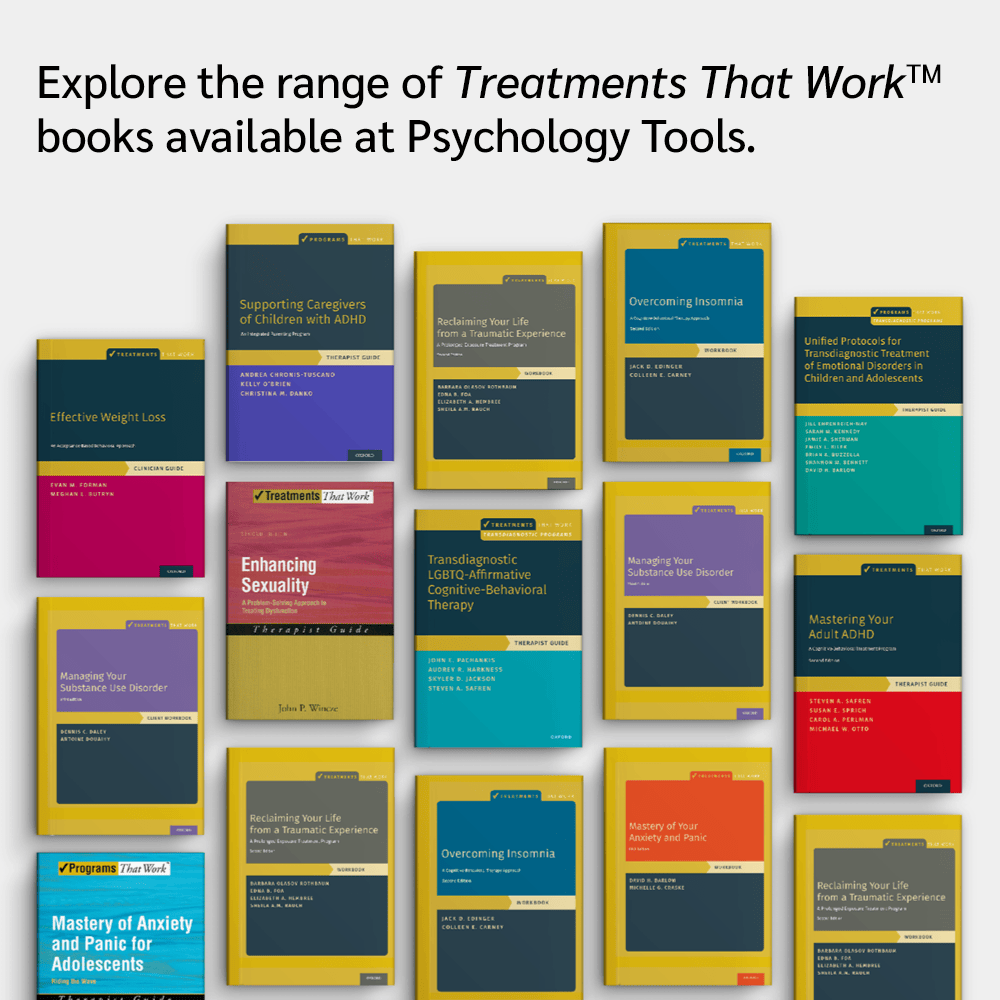
What's inside
- Psychoeducation on ADHD and the parent-child interaction model.
- Practical worksheets and tools for behavior management.
- Guidance on emotion regulation strategies for caregivers.
- Modules on structured routines, time management, and school collaboration.
- Step-by-step plans for handling oppositional behavior and promoting positive interactions.
FAQs
How this resource helps improve clinical outcomes
By supporting parents in managing their own stress and using structured behavioral strategies, this resource:
- Reduces child behavioral difficulties and oppositional behaviors.
- Enhances parent-child relationships and positive interactions.
- Lowers parental stress, frustration, and emotional reactivity.
- Improves household consistency and child self-regulation.
Clinicians who use this resource also use
References and further reading
- Barlow, D. H. (2004). Psychological treatments. American Psychologist, 59, 869-878.
- Chronis-Tuscano, A., et al. (2013). Enhancing behavioral parent training with emotion coaching. Journal of Clinical Child & Adolescent Psychology.
- Johnston, C., & Chronis-Tuscano, A. (2015). Families and ADHD. In R. A. Barkley (Ed.), Attention-deficit hyperactivity disorder: A handbook for diagnosis and treatment (4th ed., pp. 191-209). The Guilford Press.
- Miller, N. V., et al. (2018). Parenting and ADHD symptom trajectory. Journal of Abnormal Child Psychology, 46, 1103-1115.
- Weisz, J. R., & Kazdin, A. E. (2017). Evidence-based psychotherapies for children and adolescents (3rd ed.). Guilford Press.
Just enter your name and email address, and we'll send you Supporting Caregivers Of Children With ADHD: An Integrated Parenting Program: Therapist Guide (English US) straight to your inbox. You'll also receive occasional product update emails wth evidence-based tools, clinical resources, and the latest psychological research.
Product
Company
Support
- © 2026 Psychology Tools. All rights reserved
- Terms & Conditions
- Privacy Policy
- Cookies Policy
- Disclaimer
Working...
We value your privacy
This site uses strictly necessary cookies to function. We do not use cookies for analytics, marketing, or tracking purposes. By clicking “OK”, you agree to the use of these essential cookies. Read our Cookie Policy
